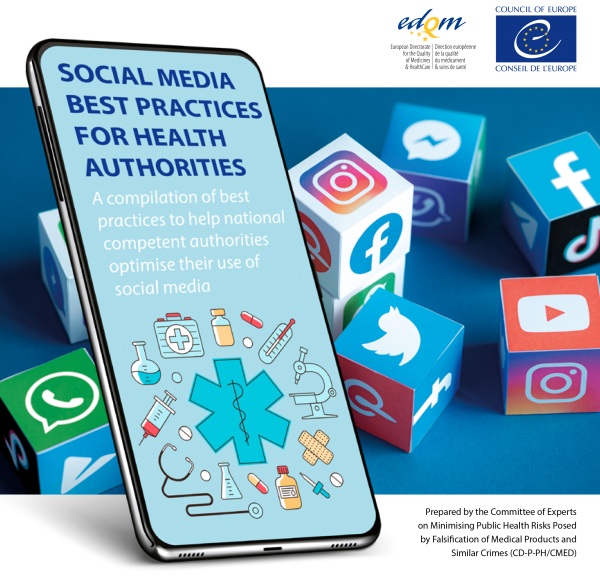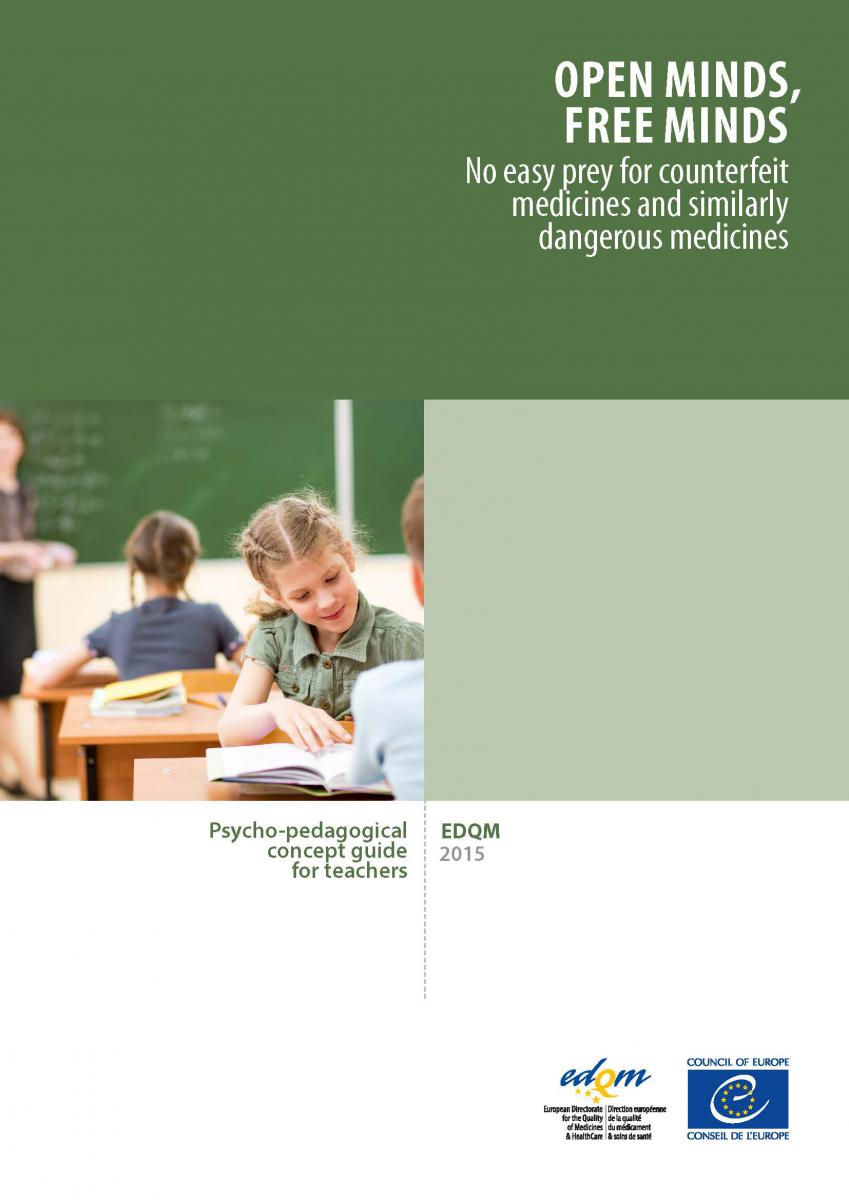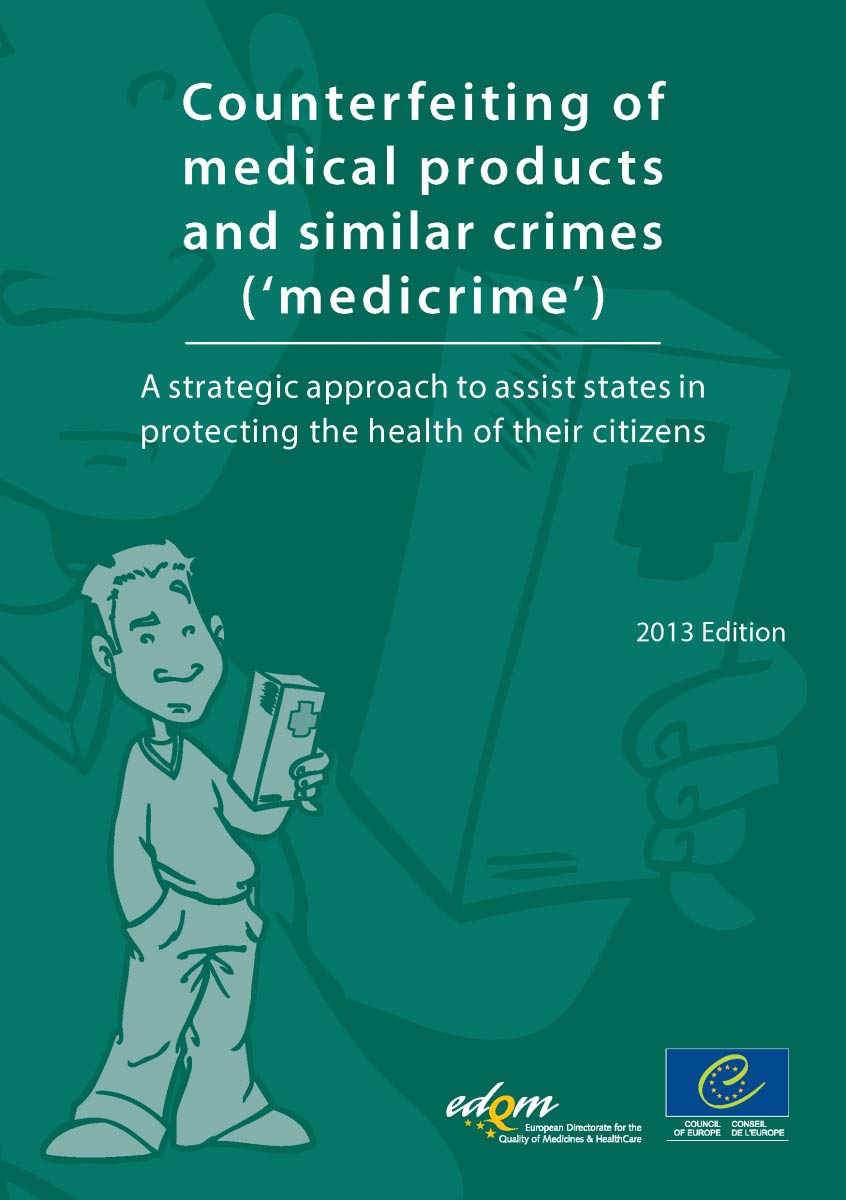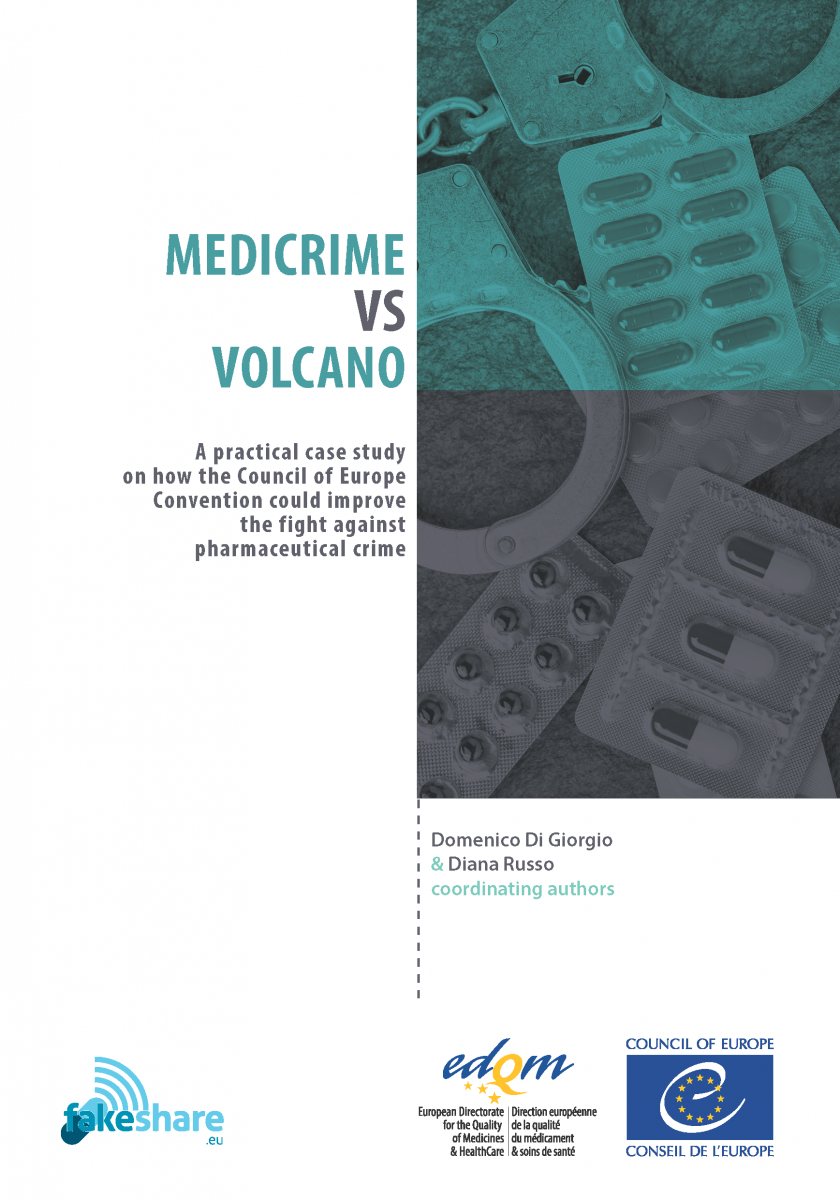Publications on falsified medical products and related crimes
Social media best practices for health authorities
A compilation of best practices to help national authorities optimise their use of social media (2021)

Much of the illegal trade in medicines in Europe takes place on the internet, and social media is increasingly used not only to sell medicines illegally, but to make false or misleading claims in respect of the products being sold. The COVID-19 pandemic even further emphasised this phenomenon.
The Committee of Experts on Minimising Public Health Risks Posed by Falsification of Medical Products and Similar Crimes (CD-P-PH/CMED), conscious of the importance of social media, decided to gather information from health regulatory authorities on how best to use social media to promote their own messages and advance their objectives. This document has been drafted to support regulatory authorities at national level regarding their use of social media in communicating with the general public.
The brochure is in English only and can be downloaded for free.
Open minds, free minds – No easy prey for counterfeit medicines and similarly dangerous medicines
Psycho-pedagogical concept guide for teachers (2015)

This booklet aims to inform and use interactive storytelling to support training and education in schools. The booklet, in comic form, is intended as a resource for teachers, trainers and social workers explaining the risks posed by falsified and illegal medical products to young people The goal is to encourage behaviour that will avoid exposure to such products. The comics were written by professionals to help children and adolescents learn preventive behaviour while having fun.
This publication is available in English and in French and can be downloaded for free on the EDQM Freepub webpage (under "Counterfeit medicines and similar crimes"). Visit the EDQM Store to order a paper copy.
This publication is also available in Portuguese, Serbian and Croatian. Lana Tafi – Strip igra o falsifikovanim lekovima (Lana Tafi – Comics and games on falsified medicines) is a similar initiative in comic form which has proved very popular in Serbia. It addresses the problem of the falsification of medical products. It also includes elements from the "Open minds, free minds" guide towards the end of the document.
A strategic approach to assist states in protecting the health of their citizens (2013)
Author: B. Wijnberg

A flow chart and practical checklist will help realise this goal and to increase awareness on the role of appropriate structures, systems, procedures and powers. The strategy can contribute to creating networks between the public and the private sectors and other stakeholders committed to fighting the falsification of medical products and similar crimes.
This publication is available in English only. It can be downloaded for free on the EDQM Freepub webpage (under "Counterfeit medicines and similar crimes").
Counterfeit Medicines: Facts and practical advice
Co-ordinating author: D. Di Giorgio (2011)
This publication, produced by Italian Medicines Agency (AIFA) and EDQM together with experts who daily confront the problem, is aimed at increasing knowledge and awareness about counterfeiting of medicines which is often the object of unreliable information.
Root causes, types of counterfeit products, distribution paths, current legislation and the role of national and international institutions are examined through real case studies.
This publication is available only in English. It can be downloaded for free on the EDQM Freepub webpage (under "Counterfeit medicines and similar crimes").
Counterfeit Medical Products & Similar Crimes: Risk communication
Co-ordinating author D. Di Giorgio (2011)
This publication discusses risk communication from the angles of both pharmaceutical and communication sciences.
It addresses individual risk perception and the development and evaluation of communication, such as awareness campaigns, alerts of incidents and information about the internet as a means to increase literacy and how to avoid internet-related criminality.
The proactive and reactive communication models are discussed using practical examples.
This publication is available only in English. It can be downloaded for free on the EDQM Freepub webpage (under "Counterfeit medicines and similar crimes").
The term "counterfeiting" as used in the Medicrime Convention is meant in its broadest sense of "falsification".
Please place an order via the EDQM Store for a free copy.
- Article: "Oncology drugs in the crosshairs of pharmaceutical crime", Lancet Oncol 2018; 19: e209–17.
- The EDQM together with the Ministry of Health of the Democratic Republic of the Congo has created two comics in French to raise awareness in the African public of the risks of falsified medicines. The stories were written for two age groups: teenagers and adults.
- Article: "The development and appraisal of a tool designed to find patients harmed by falsely labelled, falsified (counterfeit) medicines", BMC Health Services Research, 2017, 17:419.
- The EDQM contributed to the APEC Supply Chain Security Tool Kit with "Chapter 10 – Single Points of Contact".




